feddoc
Long Time Member
- Messages
- 7,430
azzhole. I posted about this last year right after it happened. Hopefully he will be convicted and die in prison. Worthles PRRRick.
http://www.alamosanews.com/v2_news_articles.php?heading=0&page=72&story_id=28731
As I recall, at least one of the two kids in his truck was his daughter, who he initally said was driving. From the article:
"Before the officer went to speak to Sanchez, he was approached by a witness, Edwin Quintana, who told him he saw Sanchez move from the driver?s to the passenger?s side of the truck after the crash. When Capito went over to talk to Sanchez, Sanchez was seated in the rear passenger side of the truck. When the officer began talking to Sanchez, Sanchez initially said he was not the driver but then admitted he was. The two girls that had been riding in his pickup were not in it at that time but were lying injured on the roadway."
Courier editor
PUEBLO ? Gilbert Sanchez?s statements at the scene of a triple vehicular homicide, and blood tests drawn afterwards, will be admissible during his trial next month, Pueblo District Judge Thomas Flesher ruled on Friday.
Sanchez, 37, is charged with multiple counts of vehicular homicide, vehicular assault, DUI and other charges in connection with the April 28, 2012, crash at Northern Ave. and Pueblo Blvd. in Pueblo that killed three Alamosa teens, Anisa Montoya, 18, Serina Sena, 14, and Selena Mascarenas, 14. The youth were leaving a church event when their car was hit by Sanchez?s pickup.
A trial is scheduled for April 2, not quite a year after the fatal crash.
Last fall Judge Flesher heard testimony related to several motions filed by Sanchez?s defense attorneys who were seeking to suppress Sanchez?s statements made the night of the crash as well as blood tests taken from Sanchez at St. Mary Corwin Hospital after he was arrested.
Judge Flesher ruled on the defense motions Friday afternoon, which is one of the reasons Sanchez?s attorneys gave for asking to continue a pretrial conference Friday. They said they needed time to digest the judge?s decisions as well as review evidence they had recently received from the district attorney?s office.
Pueblo District Judge Larry Schwartz continued the pretrial hearing to March 18.
Flesher denied all of the pending defense motions including: Motion to suppress based on a search and/or seizure which lacked reasonable suspicion; motion to suppress warrantless search and observation of Mr. Sanchez while sitting in his vehicle-plain view exception inapplicable because Officer Capito opened the truck door prior to making such observations; motion to suppress evidence based on a seizure which lacked probable cause; motion to suppress the second and third blood tests and any related evidence because the officers did not have constitutional or statutory authority to require Mr. Sanchez to take more than one blood test; motion to suppress blood tests and any related evidence because the officers lacked probable cause to require the tests; motion to suppress all statements of the defendant including response to express consent advisement made subsequent to defendant's invocation of his right to counsel; and motion to suppress involuntary statements obtained by Officer Capito or in the alternative to suppress statements obtained by Officer Capito in violation of Miranda.
Pueblo Police Officer Jeff Capito testified last October about what he found when he responded to the crash that evening and his subsequent actions with regard to Sanchez.
In his March 1 order, Judge Flesher determined the Pueblo officer acted appropriately and legally in relationship to his questioning of Sanchez and subsequent blood draws.
The defense motion argued any questioning by Capito of Sanchez at the scene was custodial interrogation, but the judge determined Officer Capito was operating under the guidelines of an investigatory stop.
?Officer Capito was dispatched to the intersection of Northern and Pueblo Blvd. on a serious traffic accident. Based upon his observations and other information that he gathered and was provided, he had reasonable suspicion to contact the defendant in the Dodge pickup,? Flesher wrote in his March 1 ruling.
The judge recounted the scene Officer Capito had recalled when he responded to the accident that Saturday evening in Pueblo. Capito observed vehicle debris and two females in the roadway as well as two damaged vehicles, a silver Dodge pickup with heavy front end damage and a red Cobalt with heavy right side damage. The officer observed that at least one individual in the Cobalt appeared to be dead. He would subsequently learn all three occupants, including driver Anisa Montoya, were dead.
Before the officer went to speak to Sanchez, he was approached by a witness, Edwin Quintana, who told him he saw Sanchez move from the driver?s to the passenger?s side of the truck after the crash. When Capito went over to talk to Sanchez, Sanchez was seated in the rear passenger side of the truck. When the officer began talking to Sanchez, Sanchez initially said he was not the driver but then admitted he was. The two girls that had been riding in his pickup were not in it at that time but were lying injured on the roadway.
Also on his first contact with Sanchez, Officer Capito observed signs he believed indicated Sanchez had been drinking, such as flushed face, bloodshot and watery eyes, thick-tongued speech and a strong order of alcohol. Since the officer saw that Sanchez was bleeding, he left the pickup when medical personnel arrived to attend to Sanchez.
Afterwards, when the medical personnel indicated Sanchez was not severely injured, Officer Capito further questioned Sanchez, asked him to get out of the truck and placed him under arrest. While beginning the Miranda advisement of Sanchez?s rights, Sanchez told Capito he wanted to talk to a lawyer.
Capito then took Sanchez to St. Mary Corwin Hospital to draw blood, which involved three samples drawn over a period of time that night. Sanchez signed an express consent advisement agreeing to the blood test, although Judge Flesher said that was not necessary. The judge said under the circumstances, Capito had the right to have Sanchez?s blood drawn whether Sanchez agreed or not.
Judge Flesher explained that Officer Capito had probable cause to arrest Sanchez for driving under the influence and at the very least vehicular assault. The statutes regarding vehicular homicide/assault state the officer can require blood, breath, saliva and urine tests to determine alcohol or drug content, and if the person refuses to take the tests or is not cooperative, the tests can be performed at the law enforcement officer?s direction based on probable cause ?without the person?s authorization or consent.?
The judge ruled, ?Regardless of the timing of the advisement and the defendant's invocation of his right to counsel, he did not in fact have the right to consult with counsel before deciding whether or not to consent to a test.?
Sanchez?s attorneys also contested the second and third blood draws, but Judge Flesher said Sanchez voluntarily agreed to the tests, and statutes regarding vehicular homicide/assault provide for one or more tests. Officer Capito had testified that the Colorado Department of Health recommended multiple blood draws for extrapolation analysis, and that is why he requested three blood draws that night.
While waiting in between blood draws at the hospital, Capito and Sanchez had some conversation, which Capito testified he did not initiate. The officer said he responded to questions Sanchez asked him, for example telling Sanchez that the three girls in the car had died.
?In considering the testimony of Officer Capito, it appears to the court that the defendant's initial statements, asking what happened were voluntary and not made in response to any statements or questions by the officer,? Judge Flesher wrote in his March 1 decision. ?It also appears to the court that given the context and timing of the defendant's subsequent statements, they also were volunteered. The court does not find that any of the defendant's statements at St. Mary Corwin Hospital were induced or obtained as a result express questions asked by Officer Capito.?
The judge determined Officer Capito acted appropriately with regard to Sanchez throughout the evening, from the time the officer first arrived on the crash scene to the time he escorted Sanchez to the hospital for blood draws.
The defense had argued that at the scene Capito had questioned Sanchez in confined quarters because Sanchez was initially unable to get out of his pickup. As Capito testified, the judge said any restrictions to Sanchez?s freedom at that time were the result of the accident, not by anything the officer did.
Capito eventually had to force the pickup door open to extricate Sanchez because of the damage to the vehicle resulting from the crash.
?There is no evidence that Officer Capito was threatening to the defendant or in some manner coerced the defendant's statements,? the judge stated.
http://www.alamosanews.com/v2_news_articles.php?heading=0&page=72&story_id=28731
As I recall, at least one of the two kids in his truck was his daughter, who he initally said was driving. From the article:
"Before the officer went to speak to Sanchez, he was approached by a witness, Edwin Quintana, who told him he saw Sanchez move from the driver?s to the passenger?s side of the truck after the crash. When Capito went over to talk to Sanchez, Sanchez was seated in the rear passenger side of the truck. When the officer began talking to Sanchez, Sanchez initially said he was not the driver but then admitted he was. The two girls that had been riding in his pickup were not in it at that time but were lying injured on the roadway."
Courier editor
PUEBLO ? Gilbert Sanchez?s statements at the scene of a triple vehicular homicide, and blood tests drawn afterwards, will be admissible during his trial next month, Pueblo District Judge Thomas Flesher ruled on Friday.
Sanchez, 37, is charged with multiple counts of vehicular homicide, vehicular assault, DUI and other charges in connection with the April 28, 2012, crash at Northern Ave. and Pueblo Blvd. in Pueblo that killed three Alamosa teens, Anisa Montoya, 18, Serina Sena, 14, and Selena Mascarenas, 14. The youth were leaving a church event when their car was hit by Sanchez?s pickup.
A trial is scheduled for April 2, not quite a year after the fatal crash.
Last fall Judge Flesher heard testimony related to several motions filed by Sanchez?s defense attorneys who were seeking to suppress Sanchez?s statements made the night of the crash as well as blood tests taken from Sanchez at St. Mary Corwin Hospital after he was arrested.
Judge Flesher ruled on the defense motions Friday afternoon, which is one of the reasons Sanchez?s attorneys gave for asking to continue a pretrial conference Friday. They said they needed time to digest the judge?s decisions as well as review evidence they had recently received from the district attorney?s office.
Pueblo District Judge Larry Schwartz continued the pretrial hearing to March 18.
Flesher denied all of the pending defense motions including: Motion to suppress based on a search and/or seizure which lacked reasonable suspicion; motion to suppress warrantless search and observation of Mr. Sanchez while sitting in his vehicle-plain view exception inapplicable because Officer Capito opened the truck door prior to making such observations; motion to suppress evidence based on a seizure which lacked probable cause; motion to suppress the second and third blood tests and any related evidence because the officers did not have constitutional or statutory authority to require Mr. Sanchez to take more than one blood test; motion to suppress blood tests and any related evidence because the officers lacked probable cause to require the tests; motion to suppress all statements of the defendant including response to express consent advisement made subsequent to defendant's invocation of his right to counsel; and motion to suppress involuntary statements obtained by Officer Capito or in the alternative to suppress statements obtained by Officer Capito in violation of Miranda.
Pueblo Police Officer Jeff Capito testified last October about what he found when he responded to the crash that evening and his subsequent actions with regard to Sanchez.
In his March 1 order, Judge Flesher determined the Pueblo officer acted appropriately and legally in relationship to his questioning of Sanchez and subsequent blood draws.
The defense motion argued any questioning by Capito of Sanchez at the scene was custodial interrogation, but the judge determined Officer Capito was operating under the guidelines of an investigatory stop.
?Officer Capito was dispatched to the intersection of Northern and Pueblo Blvd. on a serious traffic accident. Based upon his observations and other information that he gathered and was provided, he had reasonable suspicion to contact the defendant in the Dodge pickup,? Flesher wrote in his March 1 ruling.
The judge recounted the scene Officer Capito had recalled when he responded to the accident that Saturday evening in Pueblo. Capito observed vehicle debris and two females in the roadway as well as two damaged vehicles, a silver Dodge pickup with heavy front end damage and a red Cobalt with heavy right side damage. The officer observed that at least one individual in the Cobalt appeared to be dead. He would subsequently learn all three occupants, including driver Anisa Montoya, were dead.
Before the officer went to speak to Sanchez, he was approached by a witness, Edwin Quintana, who told him he saw Sanchez move from the driver?s to the passenger?s side of the truck after the crash. When Capito went over to talk to Sanchez, Sanchez was seated in the rear passenger side of the truck. When the officer began talking to Sanchez, Sanchez initially said he was not the driver but then admitted he was. The two girls that had been riding in his pickup were not in it at that time but were lying injured on the roadway.
Also on his first contact with Sanchez, Officer Capito observed signs he believed indicated Sanchez had been drinking, such as flushed face, bloodshot and watery eyes, thick-tongued speech and a strong order of alcohol. Since the officer saw that Sanchez was bleeding, he left the pickup when medical personnel arrived to attend to Sanchez.
Afterwards, when the medical personnel indicated Sanchez was not severely injured, Officer Capito further questioned Sanchez, asked him to get out of the truck and placed him under arrest. While beginning the Miranda advisement of Sanchez?s rights, Sanchez told Capito he wanted to talk to a lawyer.
Capito then took Sanchez to St. Mary Corwin Hospital to draw blood, which involved three samples drawn over a period of time that night. Sanchez signed an express consent advisement agreeing to the blood test, although Judge Flesher said that was not necessary. The judge said under the circumstances, Capito had the right to have Sanchez?s blood drawn whether Sanchez agreed or not.
Judge Flesher explained that Officer Capito had probable cause to arrest Sanchez for driving under the influence and at the very least vehicular assault. The statutes regarding vehicular homicide/assault state the officer can require blood, breath, saliva and urine tests to determine alcohol or drug content, and if the person refuses to take the tests or is not cooperative, the tests can be performed at the law enforcement officer?s direction based on probable cause ?without the person?s authorization or consent.?
The judge ruled, ?Regardless of the timing of the advisement and the defendant's invocation of his right to counsel, he did not in fact have the right to consult with counsel before deciding whether or not to consent to a test.?
Sanchez?s attorneys also contested the second and third blood draws, but Judge Flesher said Sanchez voluntarily agreed to the tests, and statutes regarding vehicular homicide/assault provide for one or more tests. Officer Capito had testified that the Colorado Department of Health recommended multiple blood draws for extrapolation analysis, and that is why he requested three blood draws that night.
While waiting in between blood draws at the hospital, Capito and Sanchez had some conversation, which Capito testified he did not initiate. The officer said he responded to questions Sanchez asked him, for example telling Sanchez that the three girls in the car had died.
?In considering the testimony of Officer Capito, it appears to the court that the defendant's initial statements, asking what happened were voluntary and not made in response to any statements or questions by the officer,? Judge Flesher wrote in his March 1 decision. ?It also appears to the court that given the context and timing of the defendant's subsequent statements, they also were volunteered. The court does not find that any of the defendant's statements at St. Mary Corwin Hospital were induced or obtained as a result express questions asked by Officer Capito.?
The judge determined Officer Capito acted appropriately with regard to Sanchez throughout the evening, from the time the officer first arrived on the crash scene to the time he escorted Sanchez to the hospital for blood draws.
The defense had argued that at the scene Capito had questioned Sanchez in confined quarters because Sanchez was initially unable to get out of his pickup. As Capito testified, the judge said any restrictions to Sanchez?s freedom at that time were the result of the accident, not by anything the officer did.
Capito eventually had to force the pickup door open to extricate Sanchez because of the damage to the vehicle resulting from the crash.
?There is no evidence that Officer Capito was threatening to the defendant or in some manner coerced the defendant's statements,? the judge stated.

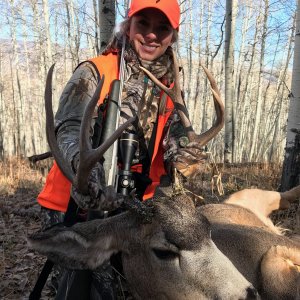
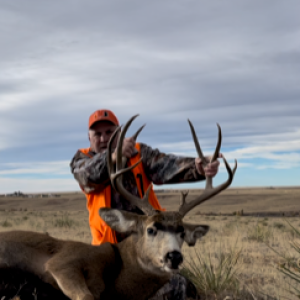
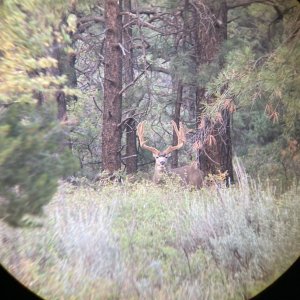
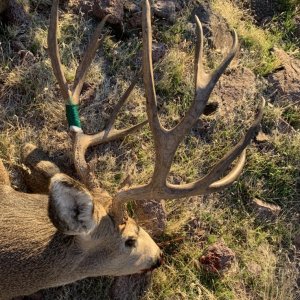
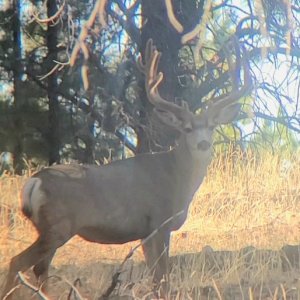
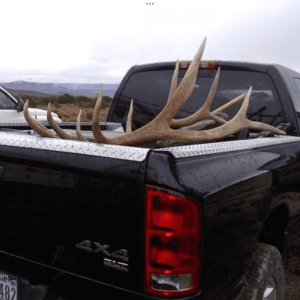
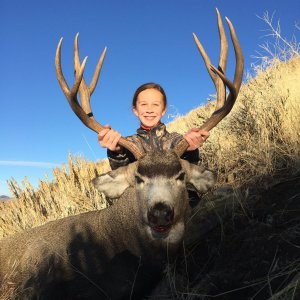

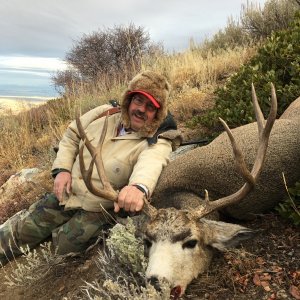
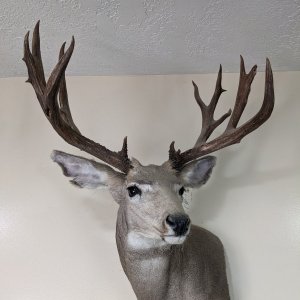
![5152kaibabbuck1[1].jpg](/xf/data/xfmg/thumbnail/13/13515-3ca08179929b1d6b48c898d8c23885b6.jpg?1621607665)
